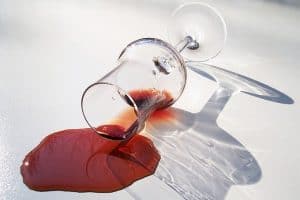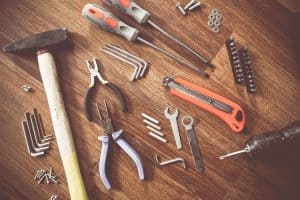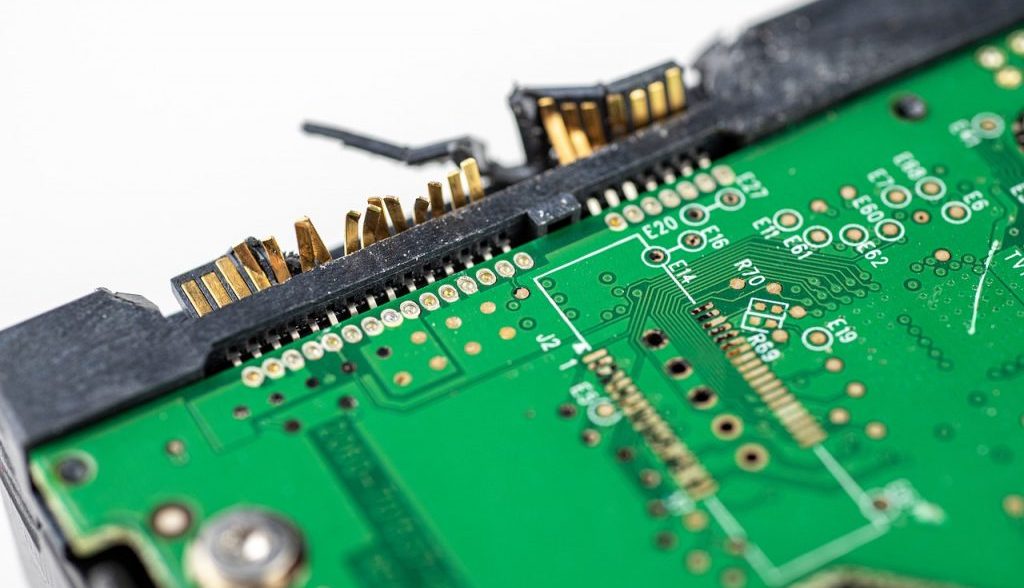Whenever you make a large investment into any type of equipment, you want to make sure it lasts. This all starts with protecting it and taking care of it properly. In this article, we will go over how to properly care for your newly purchased DJ equipment.
Also, if it gets broken, it may be able to be fixed. We will give you some repair tips and try to point you in the right direction to purchase some new parts.
5 Tips for Taking Care of Your Equipment
By following these tips, you are sure to prolong the life of your equipment. This way, it will have a high resale value and will perform for you night after night.
1. Keep Equipment in Cases When Not in Use
Most equipment gets damaged while it is being transported or while in storage. The easiest way to stop this from happening is to keep your equipment in cases.
While cases will not protect your equipment from everything, For example, if you drop your speakers off a third story balcony, it most likely is destroyed. But overall, cases will give it an extra layer of protection in case they get dropped or smashed.
There are a lot of different options when it comes to cases. For the best DJ mixers and controllers, the highest level of protection is flight cases. These are hard and durable cases with layers of foam on the inside. They come in different sizes, so be sure to get the right case that fits your mixer.
One downfall to flight cases is that they are heavy and take extra effort when moving things.
Another option is soft cases. Two benefits of soft cases is that they are lighter and cheaper than flight cases, but on the other hand they offer less protection.
Lighting and turntables should be transported in cases as well. Some of the best DJ lighting equipment on our list is made of glass. So be especially careful when transporting these.
2. Purchase Covers For Your Speakers
Some of the best DJ speakers are heavy and bulky. While they are pretty durable, all those little bumps and drops add up. In the long run, they lessen the total life of the speakers.
Each time that the box is rattled, the parts inside rattle around and can cause damage. The can effect everything from the wiring to the internal components.
By using a cover on your speakers, this creates a damping effect which helps to minimize shaking and rattling while the speaker is being moved or set up. Also, covers help to protect the speaker from dust and dirt that may get inside and cause problems.
Be sure to find speaker covers that fit your speakers.
3. Keep Drinks Away From the DJ Booth
 Water and electronics don’t mix, as well as alcohol and sodas. So whatever you do, keep drinks away from the DJ booth. Many people have ruined their top DJ controller by spilling a drink on it.
Water and electronics don’t mix, as well as alcohol and sodas. So whatever you do, keep drinks away from the DJ booth. Many people have ruined their top DJ controller by spilling a drink on it.
If you are going to drink while DJing, be mindful and keep it away from the electronics. Also, be careful of drunk people holding drinks near the equipment. Often times they set it down somewhere and knock it over. Or they let it spill while they are talking to you.
4. Be Prepared When It Comes To Outdoor Parties
Often times, many DJs play at outdoor venues. This may be at pool parties, on the beach, or in a backyard.
First off, if you are in an area where you are not covered, be sure to check the forecast to make sure there is no rain predicted. If there is a possibility of rain, be sure to have things like plastic bags, tarps, or a tent that you can put over you and the gear.
Secondly, if you are playing near a beach or somewhere with salt water, wipe down your equipment after each gig. Salt is very corrosive and often times it is misting off the water. Over time, this can add up and damage your electronics.
5. Carry Smaller Gear in a Backpack
The best DJ backpacks are designed to protect your equipment from the dangers of transport. Most often times, they are water resistant and crush proof.
They usually have specific compartments for DJ headphones, laptops, vinyl, wiring, and even mixers or controllers.
Also, they serve as organizers so you know where everything is at all times.
Repairing Your Equipment
 If something does happen to your gear where it breaks, whether it is from abuse or from normal wear and tear, there may be a chance that it can be fixed. Here are two ways to get your stuff fixed.
If something does happen to your gear where it breaks, whether it is from abuse or from normal wear and tear, there may be a chance that it can be fixed. Here are two ways to get your stuff fixed.
Manufacturers, Dealers, and Repair Centers
Often times, many pieces of DJ equipment have some type of warranty. Your best bet is to check with the manufacturer to see if the damage is covered under warranty. In this case they will instruct you what to do.
If that doesn’t work, there is a chance that there is a local dealer or repair shop that can service your equipment for you. Depending on the cost of the repair, this may be a viable option.
DIY Repairs
If none of the above options work out, you may be able to fix the equipment yourself.
It really comes down to if there are replacement parts available for your specific model of equipment. Channel faders, knobs, tweeters, wires, and subwoofers are some of the more common parts that are available for repair.
Beyond that, it may be hard to find.
One website with a wide selection of replacement parts is fullcompass.com. You can search for various parts on their site by name, but it is easier if you have the exact part number.
If you decide to replace your own parts, make sure that everything is unplugged and there is no electric going to the unit.
Conclusion
Properly protecting your DJ equipment is a wise decision. Not only does this help ensure that all your gear is working properly throughout your DJ gig, but it also saves you money.
Many pieces of DJ gear are expensive, but if they are well taken care of they have a high resale value.
Also, no self-respecting DJ wants to show up to a gig with beat up and broken equipment.
If your DJ gear does happen to break, don’t give up. By following the steps we outlined above, you may be able to repair your gear and have it in working order again.




